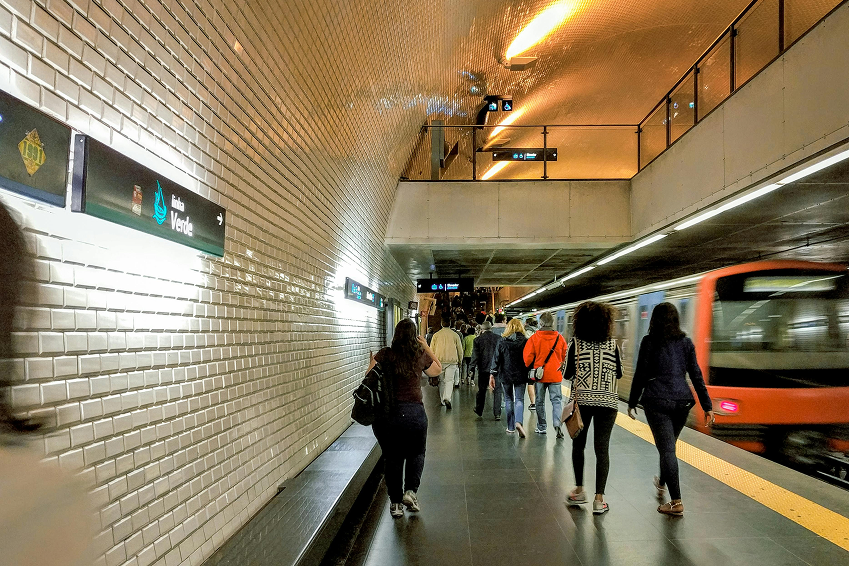Index
Receive our newsletter
You pack your bags, check Google Maps several times to see what your new neighborhood will look like, whether you’ll have access to nearby metro stations, supermarkets, gyms... or anything that matters to you.
Before starting a new chapter where we move to live in a new place, we want to make sure we’ve prepared our clothes and furniture and learned as much as we can about the new location. If we're lucky, we might even think about our physical health, planning to eat well or stay active. But do we also think about how we’ll feel emotionally? Do we try to gather information about how this change will affect us psychologically?
There are several reasons to give more thought to mental health when entering a new phase of life:
- Moving is statistically the third most stressful event in a person’s life, after losing a loved one and going through a divorce.
- Sometimes we think that when we travel, our problems will stay behind. In some cases, moving to a new place is intended to achieve just that—leaving the past behind. But it doesn’t work that way. The first few weeks may be filled with excitement as we adapt and explore a new place, but within 2–3 weeks, emotional challenges often start to arise.
- Changing locations activates our alert system. While this heightened awareness is useful for navigating new surroundings—like finding your way back home or figuring out the right road exit—it can also cause psychological fatigue.
- Cultural differences can also overwhelm our brains. If we move somewhere with a different language or unfamiliar cultural norms (how to greet, order food, etc.), our cognitive processes have to work harder to adapt to the new situation.
- Many people report personal growth after moving to a new place. Of course, not everything has to be emotionally difficult. If we navigate the challenges of a new destination effectively, it can become a transformative experience that strengthens our adaptability, psychological flexibility, openness, and resilience.
As you can see, there are plenty of reasons to pay attention to mental health. While everyone faces unique challenges and starts from a different point, we’d like to share an acronym to help you remember some key ideas for taking care of your mental health during this new phase of your life:
SUITCASE
Mindful: In the face of novelty, your mind will likely generate endless expectations (“everything I should do to make the most of my time here”) or dwell on nostalgia or comparisons with what’s familiar. This is normal—our minds just work that way. However, we recommend setting aside at least a few minutes daily (start with just 3 if more feels overwhelming) for a mindful activity. This could be walking without music or distractions, focusing on the architecture or details of your surroundings, or mindfully eating something local. Formal meditation can also be helpful, but if that feels challenging, remember that any activity done with full attention to the present moment counts as mindfulness practice.
Acceptance: As days go by, small challenges and discomforts will arise—something not working as expected, difficulties in understanding verbal or non-verbal communication, etc. It’s normal for prejudices and stereotypes to surface in such moments. Don’t blame yourself if this happens—it happens to everyone. What matters is recognizing these “biases” and approaching them with acceptance. Not everything is under your control, and there’s no single “right way” to do things.
Emotional Freedom: Even while living in the present and practicing acceptance, various emotions will surface—nostalgia, guilt, uncertainty, disappointment. Many people feel scared when these emotions arise during a new adventure, but remember: they are just emotions. They don’t define you or your experience in this new place. Allow yourself to feel freely, without self-judgment or assigning a deeper meaning to fleeting emotions.
Experiences: Plan and create experiences that align with who you are and what makes you feel good. Sometimes, discomfort arises because we change our routines so much that we forget what used to contribute to our well-being. Reflect on what made you feel good before and think about how you can incorporate that into your new destination.
Time for Yourself: At first, everything may feel stimulating, and the urge to do everything can make you forget to take time for yourself and rest. Remember, rest is how we recharge our inner batteries. Wherever you are, rest is essential for enjoying everything else.
Friendships: Someone once said that what matters most isn’t the destination or the journey, but the company—and science has backed this up. Social well-being is a significant part of our overall well-being. It’s not about having many people, but about meaningful relationships. Make an effort to cultivate those in your new destination.
At MindPlace, a multilingual mental health center, we collaborate with Lodgerin because they genuinely prioritize mental health and show real care for the people who will inhabit their spaces. That’s why we’re here to support you in this new adventure and help you pack your mental health “suitcase.”









